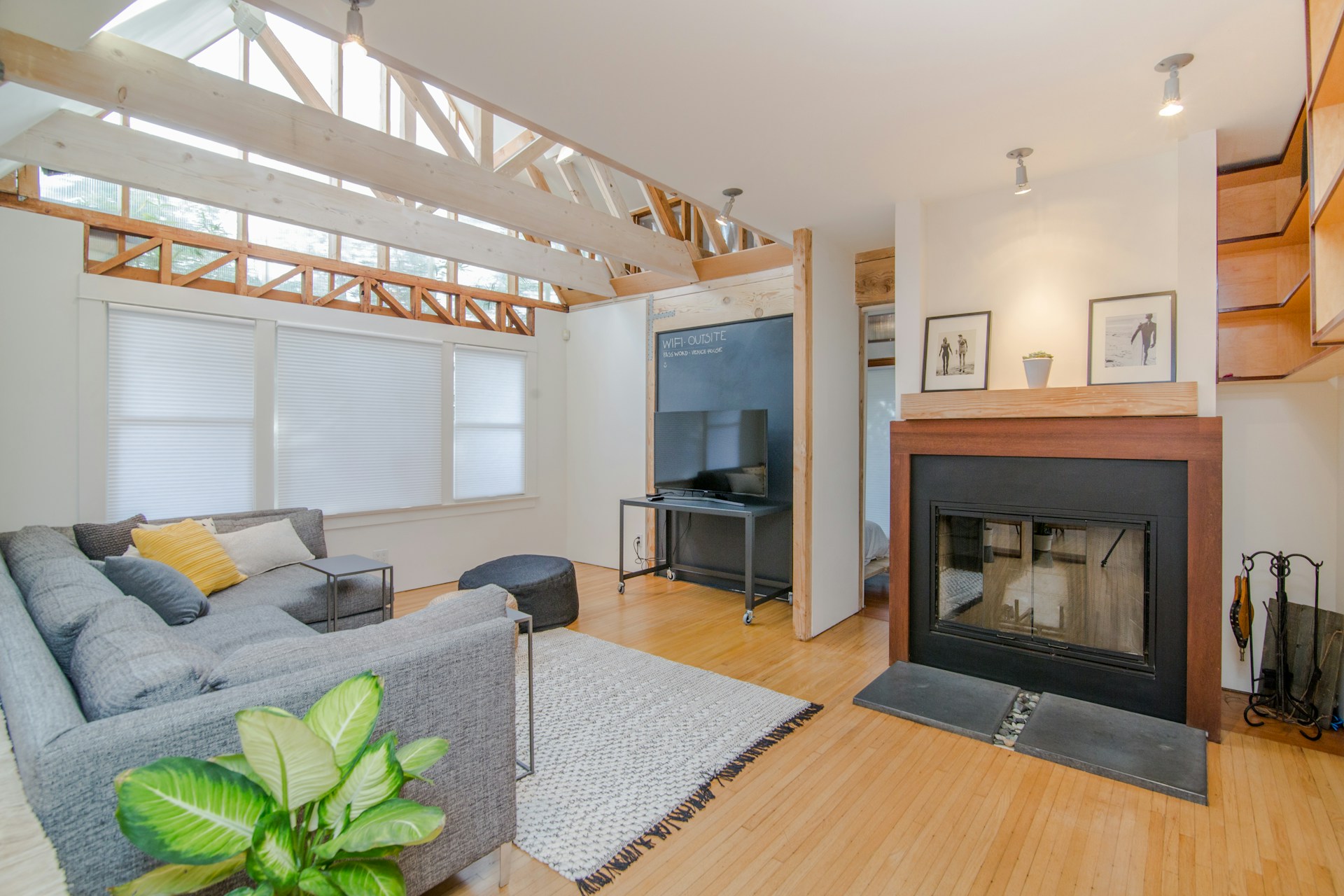Digital Nomad Life in Germany: A Complete Guide
Read our guide on becoming a digital nomad in Germany. Find out relevant information about accommodation, visas and coworking spaces.
In this guide we explain everything you need to know about being a digital nomad in Germany, from relevant information on accommodation, setting out some of the co-living options in each city, to health insurance for digital nomads. What’s more, we tell you about alternative coworking spaces, public places with internet and, of course, the best things to see and do regarding entertainment, culture and leisure depending on the season you choose to go and live your experience as a digital nomad in Germany. Please take note of this guide to make your passage to Germany safer and more secure.
Why choose Germany to live as a digital nomad?
Germany is one of Europe’s strongest economies, offering a high quality of life and unrivalled opportunities for digital nomads. The country has an excellent public transport network, making it easy to get around both within and between cities. It is also a central country in Europe, which means that you will have direct connections to many other countries in the region.
Germany is also a prominent place for networking. Berlin, for example, has established itself as a hub for technology and entrepreneurship, where you can connect with other remote professionals and even find opportunities to collaborate on innovative projects. Many German cities also have active digital nomad communities, which organise events, workshops and activities to facilitate integration and promote professional growth.
In terms of safety, Germany is one of the safest countries in the world, which is essential for those travelling alone or as a couple. The local culture is also open and respectful, which makes foreigners feel welcome quickly. If you enjoy a culturally enriching environment, you will be amazed by the diversity and depth of German culture, with its history, museums, festivals and nightlife. In addition, Germany is a pioneer in sustainability, and you can enjoy many green spaces and ecological initiatives.
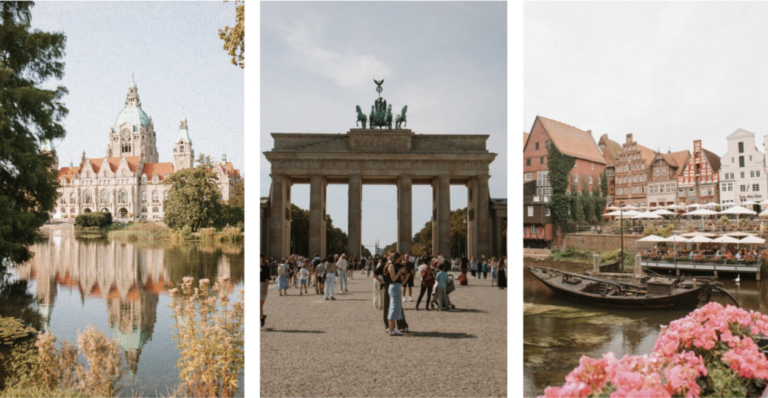
Visas allowing legal residence in Germany
To work remotely in Germany, there are several visa options for digital nomads. Although the country does not currently have a specific digital nomad visa, you can apply for other types of visas that allow you to settle legally.
- One option is the freelance visa, which is intended for those who can prove their work independence and have contracts or clients within Germany. To obtain this visa, you are generally required to demonstrate professional experience and to submit a letter of intent from potential German clients.
- Another alternative is the jobseeker’s visa. This allows professionals to spend time in the country while looking for job opportunities. Although in this case it is not a permanent option for digital nomads, it can be useful for those who want to settle down and explore work options while living in Germany.
Some of these visas can be renewed and in certain cases even a change of status to other visas, such as a regular work visa or, eventually, permanent residence. Extension options depend on the type of visa you enter the country on, so it is essential to do your research and, if possible, consult a visa advisor to ensure you choose the best option.
Where to live and work as a digital nomad in Germany
Germany is a diverse country, and each of its major cities offers something unique for digital nomads. Here’s a look at the most popular options:
1. Berlin
Berlin is the capital and the centre of creativity, technology and innovation in Germany. Here you’ll find a number of first-rate coworking spaces, offering everything from collaborative work areas to private offices. Some of the most recommended coworking spaces include Factory Berlin and Betahaus, where memberships typically start from 200 euros per month, although there are also pay-per-day options. Berlin also has many cafés and libraries with excellent internet access and a good working environment.
When it comes to accommodation, Berlin offers a wide variety of options. Co-living spaces such as The Social Hub and Cohabs are an ideal alternative for those who want a more social and affordable experience, with prices starting at around 700 euros per month. You can also find extended-stay hotels, such as Hotel Berlin, where it is possible to get special rates for digital nomads. If you prefer more flexibility, exchange houses or platforms such as Airbnb allow you to stay in furnished flats.
2. Munich
Munich is known for its quality of life and safety. Although living costs are higher compared to other German cities, those who choose Munich value its proximity to nature and its peaceful atmosphere. Coworking spaces in Munich are fewer in number than in Berlin, but the city has interesting options, such as WERK1, an incubator for start-ups that attracts many entrepreneurs. Prices in these spaces are usually around 250 euros per month.
Munich also has a wide range of accommodation for digital nomads, from studios in the city centre to housing in residential neighbourhoods. For those looking for affordable options, co-living spaces are an excellent alternative that facilitates networking and reduces housing costs. In the centre, the co-living space THE FIZZ offers flexible stays with shared working areas, ideal for nomads.
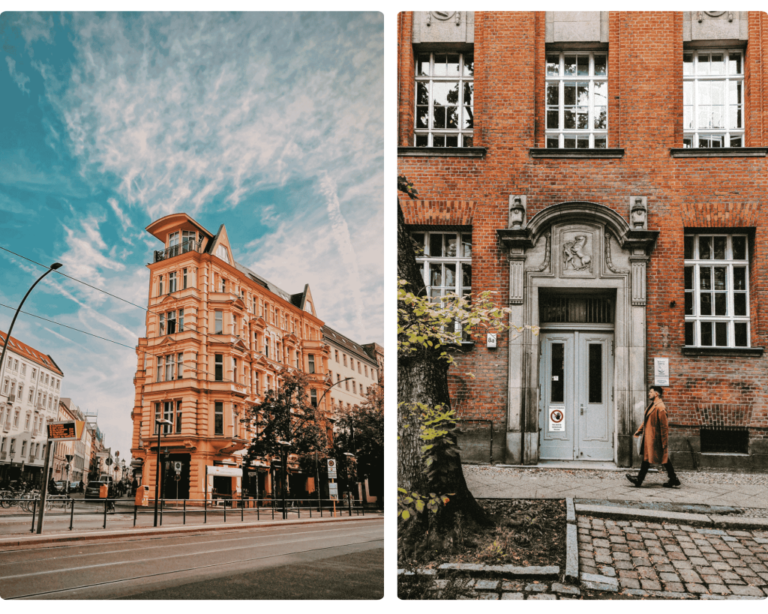
3. Hamburg
In northern Germany, Hamburg is an increasingly popular choice for digital nomads. Known for its harbour and multicultural atmosphere, this city combines traditional German charm with a vibrant technology scene. Coworking spaces in Hamburg include options such as Mindspace and WeWork, both well located and with prices starting from 150 euros per month.
In terms of accommodation, Hamburg offers everything from flats in the city centre to more affordable options in nearby neighbourhoods. There are also several platforms and networks for renting temporary rooms and flats, ideal for digital nomads who want flexibility.
Public spaces with good internet connection for working in Germany
For those who enjoy working outdoors or in public spaces, Germany has an excellent network of parks and libraries with good internet connections. In Berlin, the Mauerpark is a hotspot for digital nomads, while in Munich, the English Garden offers large green areas where you can work. Hamburg also has parks such as Planten un Blomen, a relaxing place where you will find a mix of tranquillity and comfort to work in. Many cafés and bars throughout the country have free internet access and are frequented by nomads, providing an ideal environment for those who prefer a lively atmosphere.
Taxes to be aware of in Germany
As a digital nomad in Germany, it is important to be aware of the tax obligations you may be subject to, as they may vary depending on your nationality and the time you spend in the country. In general, the taxation of digital nomads depends on whether they obtain tax residency in Germany. This status is acquired when you spend more than 183 days a year in the country, at which point you would be obliged to declare your overall income to the German tax authorities.
Who has to pay taxes in Germany?
If you are a tax resident in Germany, the country will tax your income generated anywhere in the world. This includes both the revenue you earn from foreign customers and from customers in Germany. However, if your stay is a shorter one and does not exceed 183 days, you are not obliged to pay tax in Germany, unless you have income from local sources.
For those who stay for a shorter period of time or prefer not to establish tax residency, it is essential to review the double taxation treaties between Germany and their home country. These agreements prevent you from having to pay tax on the same income in both countries. Germany has signed double taxation agreements with numerous countries, which offers some flexibility for digital nomads who wish to avoid a duplicate tax burden.
Important: If you are a frequent traveler and want to stay connected without worrying about expensive roaming or looking for a new SIM at every destination, Holafly’s subscription plans are for you. With a single eSIM, enjoy internet in more than 170 countries for a fixed price and no surprises on your bill. Travel without limits and connect easily and securely! 🚀🌍
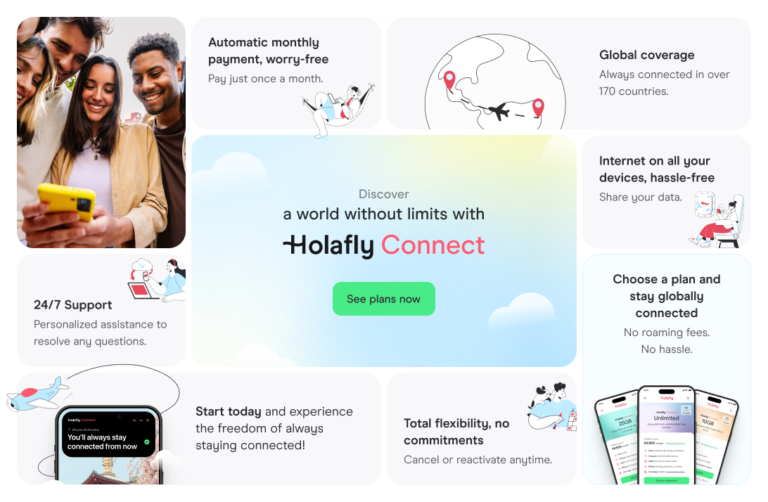
Health insurance and quality of health service in Germany
Germany has a high-quality healthcare system, and both public and private systems are available to digital nomads living and working in the country. Medical care in Germany is renowned for its efficiency, advanced technology and highly trained professionals.
Access to the health system
If you plan to reside in Germany for an extended period of time, you should have health insurance that complies with local regulations. Digital nomads can choose between public and private health systems. Membership of the public system is mainly available to those who have an employment contract with a company in Germany. On the other hand, the self-employed often opt for private health insurance.
Private insurance offers a variety of coverage and cost options, allowing you to tailor the plan to your specific needs. Some companies offering health insurance for digital nomads in Germany include SafetyWing, Cigna Global and Allianz, which offer international plans designed to cover emergencies, medical consultations, hospitalisation and more.
Quality of health care
The quality of medical care in Germany is among the best in Europe. The country has an extensive network of hospitals, clinics and health care centres in every city. In big cities like Berlin, Munich and Hamburg, you will find English-speaking doctors, which makes communication easier for those who are not yet fluent in German. Many clinics and hospitals offer specialised services for international patients.
Daily life as a digital nomad in Germany
Living in Germany as a digital nomad means adapting to a new culture and lifestyle, but the country offers many facilities to make the transition easier. Here are some key aspects of everyday life in Germany.
1. Transport and mobility as a digital nomad in Germany
Germany has an efficient and well-developed public transport system, including trains, buses, metros and trams. In large cities such as Berlin and Munich, the transport network is extensive and reliable, making it possible to get around without a car. Public transport ticket prices vary by city and area, but monthly fares and special discounts for long-term residents are common.
If you plan to drive, please note that the foreign driver’s licence can be used for a limited period, which depends on your nationality and the type of agreement between your country and Germany. In some cases, you may be able to validate your current licence without taking an additional exam, although this varies depending on the country of origin. For longer stays, you will need to obtain a German driver’s licence through a registration process and, in some cases, training.
In several German cities there is the option of car sharing, whether by bicycle, electric scooters or hourly rental cars. These services are particularly useful for digital nomads who prefer not to commit to their own vehicle and enjoy flexible mobility.
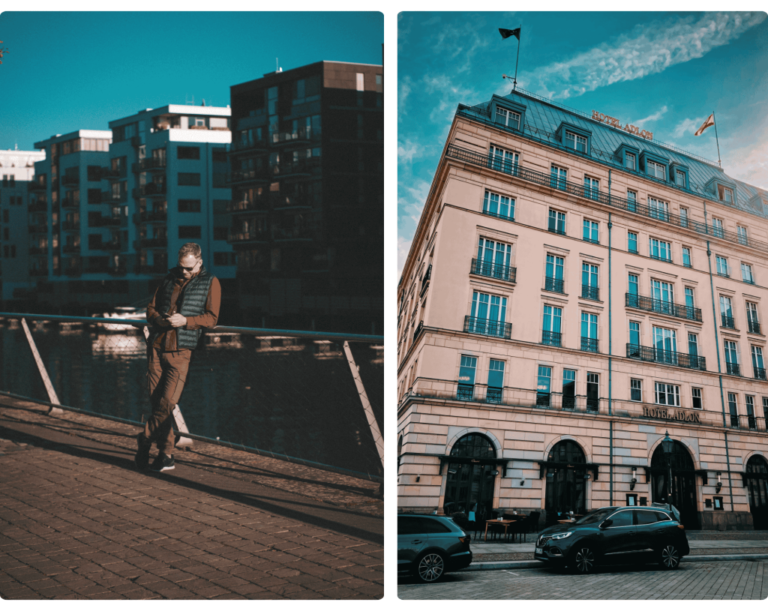
2. Managing your finances as a digital nomad in Germany
Opening a bank account in Germany is essential for managing your finances efficiently, especially if you plan to receive local payments or need to make transactions in euros. Among the most recommended banks for foreigners are Deutsche Bank, Commerzbank and N26. N26 is a digital bank that allows you to open accounts quickly, without the need to visit a branch, making it easy for those who prefer a 100% digital experience.
Although Germany is a country where cash payments are common, more and more establishments are accepting card payments. For cash withdrawals, there is a wide network of ATMs throughout the country, although some banks charge fees for international use. Before withdrawing money, check whether your current bank has agreements with German banks to avoid additional charges.
In addition to traditional banks, digital banks for digital nomads are an excellent option, as they offer accounts in different currencies and, in some cases, do not charge foreign transaction fees. There are also applications such as Revolut and Wise that allow international money transfers at low fees, which can be useful for those who need to manage funds between countries.
3. Food for digital nomads in Germany
Germany offers a wide variety of options for shopping and eating out, making everyday life easier for digital nomads. For food shopping, some of the most common and accessible supermarkets are Aldi, Lidl and Penny, which offer products at affordable prices. You will also find options such as Edeka and Rewe, with a wider variety of local and international products.
As for the average cost of meals, a weekly shopping trip to these supermarkets usually costs between 40 and 60 euros per person, depending on the city and the products. If you prefer to eat out, the options are varied: From small restaurants and local cafés to large international food chains. A meal in a budget restaurant costs between 10 and 15 euros, while a meal in a mid-range restaurant costs around 25 euros. Recommended restaurants for digital nomads include those offering international food, such as Vietnamese, Thai and Italian, especially in cities like Berlin and Munich, where there is a wide variety.
4. Leisure and free time for digital nomads in Germany
Germany has a wide range of leisure activities to suit all tastes. If you’re interested in keeping fit, you’ll come across gyms like McFIT and Fitness First, which have multiple locations and affordable prices starting at 20 euros a month. For those who enjoy outdoor activities, the country has numerous hiking trails, especially in regions such as the Black Forest, Bavaria and the Harz.
In terms of cultural options, Germany offers renowned festivals such as Oktoberfest in Munich, which takes place in September and October, and the Berlin Film Festival in February, one of the most important film events in the world. Each city has its own local events, such as Christmas fairs and markets in winter. Cities also offer museums, art galleries and recreational activities ideal for digital nomads interested in cultural leisure.
5. Best seasons to be in Germany
Germany has a diverse climate, with well-defined seasons that affect the living experience. Spring (March to May) is an excellent time to settle, as temperatures are mild and days are longer. This time of year allows you to enjoy outdoor activities and explore the cities without the tourist crowds of summer.
Summer (June to August) is ideal if you enjoy warm temperatures, although some cities can be quite crowded. However, it is perfect for those who want to enjoy festivals, open-air terraces and the famous beer gardens. On the other hand, autumn (September to November) offers cool weather and colourful scenery, while winter (December to February) is ideal if you want to experience Christmas markets and don’t mind the cold.
Cost of living as a digital nomad in Germany
The cost of living in Germany for a digital nomad varies according to city and lifestyle. In general, cities such as Berlin, Hamburg and Munich tend to be more expensive, while locations such as Leipzig and Düsseldorf offer more affordable prices.
For a monthly breakdown, rent is one of the main expenses. A co-living space or flat share in Berlin can cost between 600 and 900 euros per month, while in Munich it is common to find prices above 1,000 euros. Coworking spaces in Germany, such as WeWork or Mindspace, offer prices from 200 to 400 euros per month, depending on location and services included.
In terms of food, as mentioned above, cheap supermarkets help to reduce the cost of food. It is also possible to eat in restaurants for a reasonable price. Transport is affordable compared to other European countries, with a monthly public transport pass costing between 60 and 90 euros, depending on the city.
If you enjoy leisure activities such as visits to museums, gym or events, you can expect to spend between 50 and 150 euros per month, depending on your preferences. In total, the monthly cost of living for a digital nomad in Germany is around 1,500 to 2,000 euros, depending on the city and lifestyle.





 Language
Language 


















 No results found
No results found






